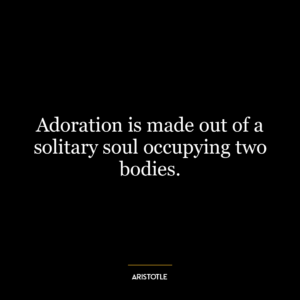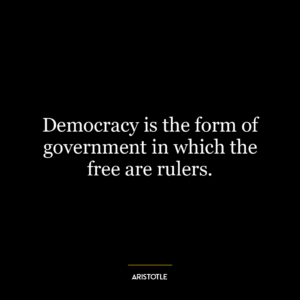This quote suggests that the act of giving or doing good for someone else can actually increase the giver’s affection for the recipient, more so than the recipient’s affection for the giver. This is based on the psychological principle that our actions can influence our feelings. By conferring a benefit, we invest our time, effort, or resources into someone else, which can enhance our emotional attachment towards them.
In the context of today’s world, this quote can be applied in numerous ways. For instance, in relationships, it suggests that acts of kindness and giving can strengthen our emotional bonds with others, even if these acts are not reciprocated to the same degree. This can be particularly important in maintaining long-term relationships, where mutual care and support are vital.
In terms of personal development, the quote encourages us to be generous and altruistic. It implies that the act of giving can be personally rewarding, not just because it makes us feel good about ourselves, but because it can foster deeper emotional connections with others. This can lead to a more fulfilling and meaningful life.
Moreover, in a broader societal context, it emphasizes the importance of philanthropy and social responsibility. It suggests that those who give to society, whether through donations, volunteering, or other forms of contribution, may develop a deeper love and appreciation for their community. This can foster a stronger sense of social cohesion and mutual respect among different members of society.
However, it’s also important to note that this quote should not be interpreted as advocating for a one-sided or exploitative relationship, where one constantly gives and the other only takes. Rather, it highlights the emotional benefits that can be derived from the act of giving, while also reminding us of the importance of reciprocity in maintaining healthy and balanced relationships.















